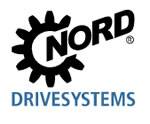Where do you get the I/O for the IIoT?
10 Ways Machine Learning Is Revolutionizing Manufacturing
How Big Area Additive Manufacturing is Enabling Automotive Microfactories
How Small Manufacturers Can Leverage Smart Manufacturing
Global Manufacturers Investing Heavily To Take The Manufacturing Floor High-Tech: KPMG Survey
The Biggest Challenges of Data-Driven Manufacturing
German manufacturers take aim at smart factories, mass customization
These Five Exponential Trends Are Accelerating Robotics
Three ways to leverage IIoT
HANNOVER MESSE - Panasonic and Siemens to Cooperate for Next-Generation Electronic Equipment Assembly Plants
HANNOVER MESSE - FogHorn™ to Showcase "Edge Intelligence" Industrial IoT Solutions at HANNOVER MESSE 2016
GE Power Opens First Advanced Manufacturing Facility, a $400 Million Digital Industrial Investment for South Carolina
Reed to Host Inaugural Robotics and Smart Factory Exhibitions in Tokyo from January 18, 2017
AppDynamics to Speak at Internet of Things North America: "Efficiency in the Connected Factory"
Industry 4.0 in Hannover Messe 2016 leads manufacturers to cross-industry innovations
Records 136 to 150 of 155
First | Previous | Next | Last
Featured Product

Improve productivity and achieve consistent, high-quality welds with mechanized welding solutions.
Manufacturing and Automation - Featured Company

